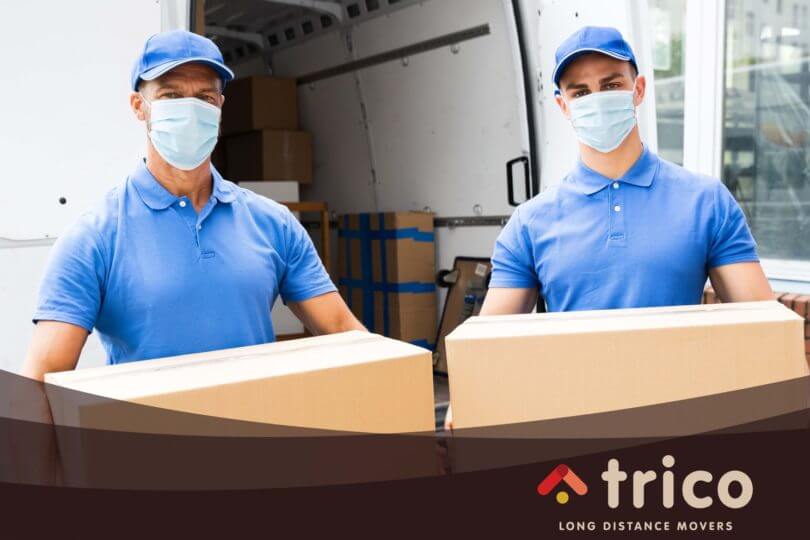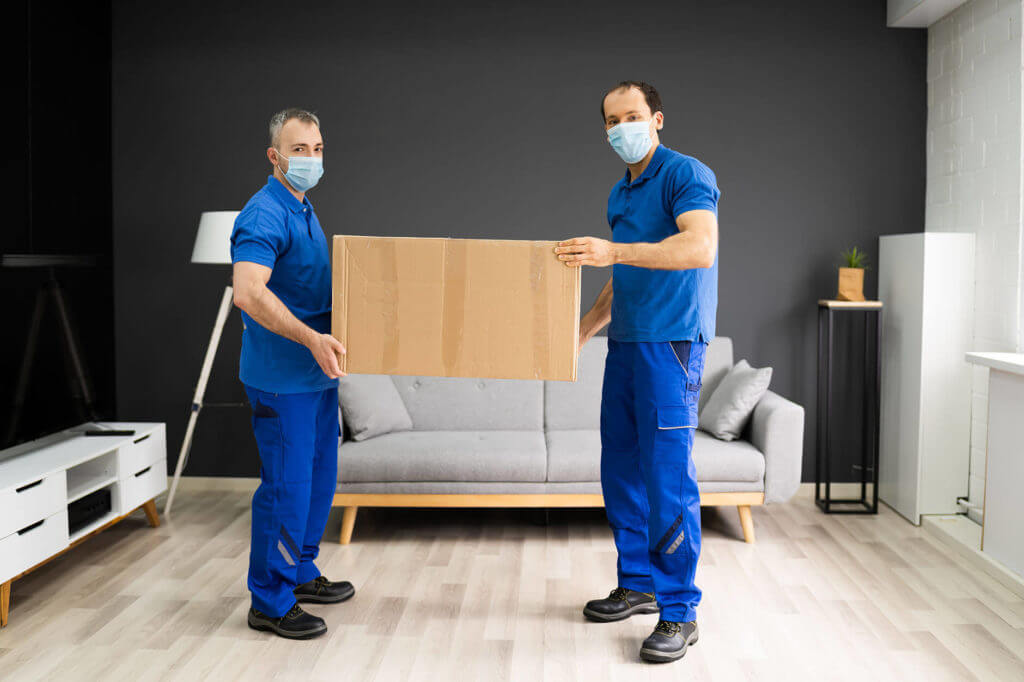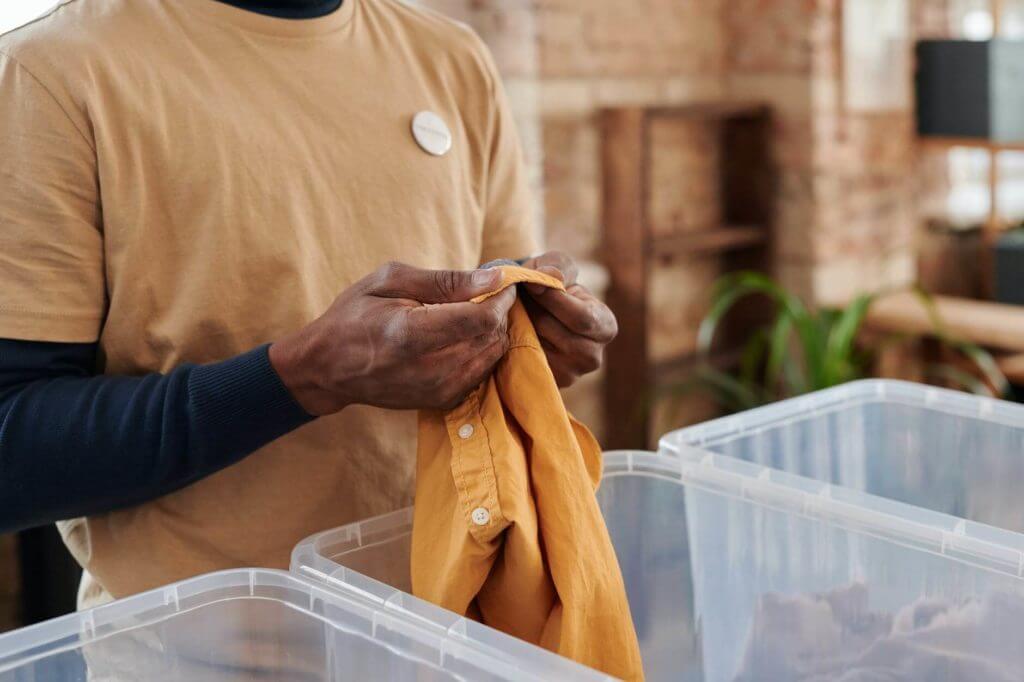When the pandemic hit, many thighs were uncertain and unknown, and even now, when vaccines are available, we still have so many questions. But the one thing we can say for sure is that moving during coronavirus is possible. And not only possible but necessary for so many folks. A quarter of Americans who moved last year did so because of the pandemic.


Is it safe to move during covid? Can I move during coronavirus? Those were just some of the questions that really quickly became familiar to everyone who needed to relocate. And the answers were more than satisfactory. It was safe and available for everyone who wanted to relocate, even if it was to a new state. But even if we feel like everything is back to normal, some measures and precautions are really important for everyone to follow in order to stay safe.
The novel virus caught us all unprepared and by surprise, and unfortunately, many folks were forced to move during the lockdown, and the reasons for a move were many and various. Some had to relocate their elderly parents to their homes. At the same time, others were searching for a job in a new city, and some even decided to relocate for love and move in with their significant other. And none of them were able to relocate without hiring movers for long-distance moving services. Simply put, moving during covid 19 and especially during lockdown was impossible to perform on one’s own.
Because of the reasons we mention above, long-distance movers were included on the list of essential workers according to guidance issued by the Center for Disease Control and Prevention (CDCP). That’s because, even if some folks relocate for their own gain, many had to leave their accommodation. For example, students at the college dorms were forced to leave their premises. Some folks lost their jobs and had to cut their expenses to say goodbye to living in high rise and relocate to suburban parts or small towns. Also, many people decided to relocate their business to another state. Heck, even Elon Musk left California and went to Texas.
But it wasn’t all sad and blue. Many people decided to relocate because they got a unique chance to live wherever they wanted. Yes, working from home had made so many hard-core New Yorkers flee to Philly or elsewhere in Pennsylvania. People could keep the NY salary and yet live in a huge house with a yard and have a view of some of the most amazing nature and mountains.
Best of all, you could pick a city to live in based on your taste and needs and not because of its proximity to economic centers. And cross-country movers made this all possible for many people. So if you still wonder how to move during coronavirus or have doubts about doing so, remember that it’s possible and is safe, so grab this opportunity and start making your dreams come true. If pandemic and all the tragedy that has come with it taught us something, it’s that life is precious and short, so wasting it in irrational fears is against common sense.

How to move during Covid was the problem placed in front of many long-distance moving companies. So they came up with a plan and procedures like many businesses had to do. Because relocation is stressful even without the pandemic, anxiety about relocating is expected to be even higher. And as you may assume, organizing a move will be even harder to do alone, without the help of professionals. For starters, you will not be exposing yourself and your friends and family to unnecessary risks, and you will have a stress-free relocation.
Whether you have to move a refrigerator or maybe to pack dishes, professionals will be prepared for any situation. All companies had to invest in Personal Protective Equipment (PPE) and cleaning products to follow the policy all companies must implement. So here is what is done differently:
No matter if you hire a company for packing service or just for relocation, it will have to give you an in-home estimation of a relocation to another state. Professionals must come to your home to see how many items you wish to ship and then give you a quote. At least this was the case until the virus came out.
Now, many companies are giving online “in-home estimation” – all you need is a good internet connection and a mobile phone with a camera. That is called a video survey, where agents estimate the cost of your move by video. A good practice would be to make an inventory list of things you’re planning to bring with you. This way, the estimation will be more accurate. Also, many businesses have introduced online and card paying methods to avoid any unnecessary contact. Most of the arrangements are made by phone and email, which makes this process faster and your move safer.

No matter if you’re relocating to another state alone or with family, you will have to implement some extra precautionary measures. And we don’t have in mind only protection of your items for storage if you plan to use storage units, but how to protect your health as well. The best relocation tip we can give you is to assign one person to be in charge of the whole process so that only one person from your household will be exposed to the risk. This person should navigate workers what to do while in house. But if you used labels for boxes, this shouldn’t be much of the work. Also, if possible, send your kids and the rest of the family to a relative’s house.
When searching for long-distance movers near me, check on their websites to see if they are following all the measures we have listed above. Go to a comment section and read reviews other customers made. If someone has left the comment that they are unprofessional and don’t follow covid 19 protocols, make sure to avoid them. But even if you’re moving during the pandemic, you should still be careful when choosing a company and avoid relocation scammers. Ask them all the questions you have about safety measures and other things related to relocation itself. If they avoid answering your questions, they are shady, and you should steer clear of them. Also, check if your cross-country moving company has a USDOT number. All cross-country movers must have it, according to federal law.

One of the things you must put on your relocation checklist is buying supplies such as boxes and other packing materials. But, when moving during covid-19, you will have to include some protective materials as well. So aside from soap, make sure to have the following items in each room where workers will be:
Cleaning is part of every relocation, but now it’s even more important. Not only you’ll have to clean each item before you place it in a box (this is for easier unpacking,) but you will have to clean the house as well. All the surfaces in the house need to be disinfected too. Also, if possible, place all boxes in one room. This way, your family can use the rest of the house without any contact with workers. And loading on a truck will be much easier this way.
Even if you hired movers for packing service, you would have to implement this advice too. If you wish to have faster loading and unloading and, therefore, a safer relocation day (workers will spend less time in your home,) you have to limit the number of thighs you plan to pack.
Go through your belongings and decide what to get rid of. The golden rule is to get rid of things you haven’t used in more than two years. Once you make piles of things, you can decide whether to toss, donate, or sell those items. You can make a garage sale and earn some money along the way. Or search online for local charity organizations and donate clothing for the homeless or maybe some toys for kids in need. You will do a good deed and have fewer thighs to pack.

In any industry, you can stumble upon an irresponsible and unprofessional company. The same is when it comes to relocation businesses. On paper, they may seem fine, but in the end, you end up having the worst service ever. That is why it’s crucial to do the background checks we mentioned earlier. When searching for movers, try to find one company that will do the whole relocation process, from packing to car shipping. This way, you will not have to deal with different companies and crews and thus increase your risk of getting infected. And, as you can see, if you hire professionals, not only will that move be less stressful but safer as well. Not to mention that with professional help, all the hard work will be avoided, and you will be able to dedicate your time to other important things, such as finding a job in a new city or a school for your kids.